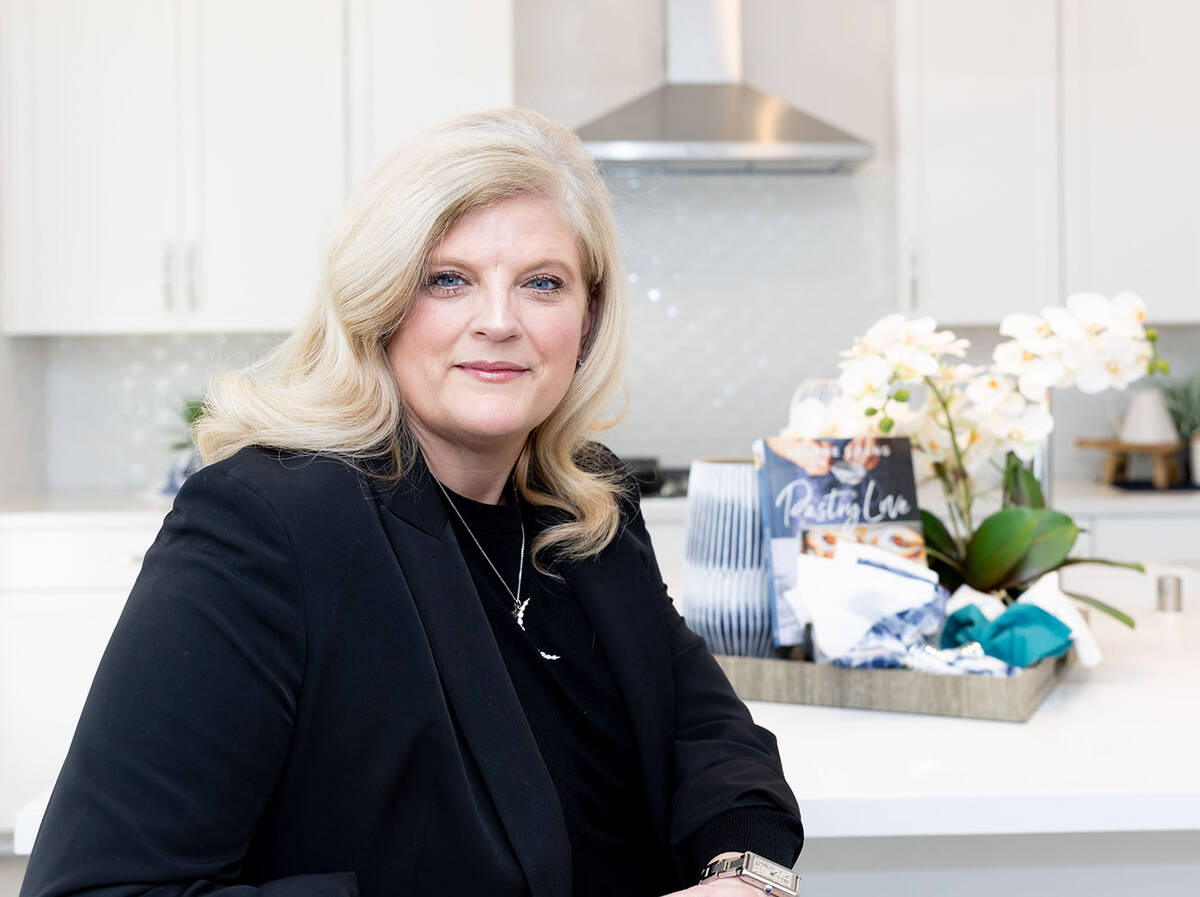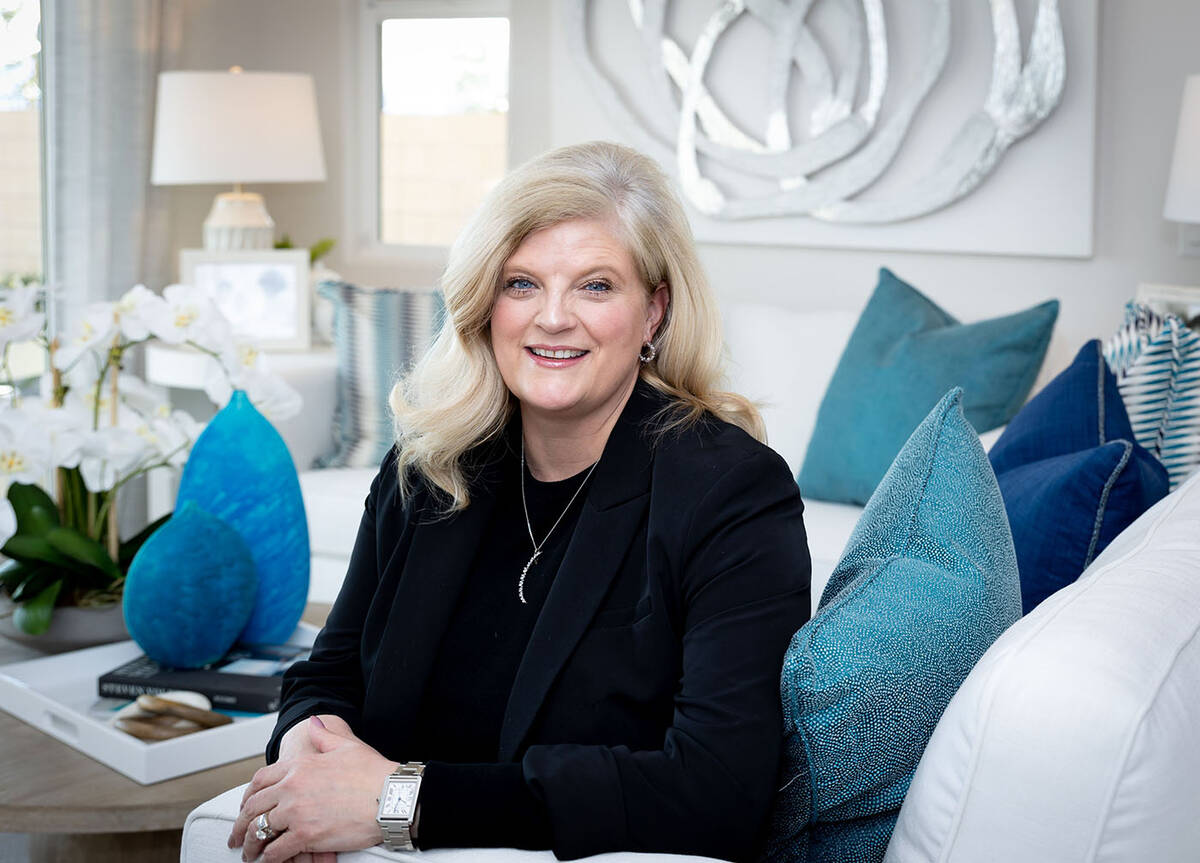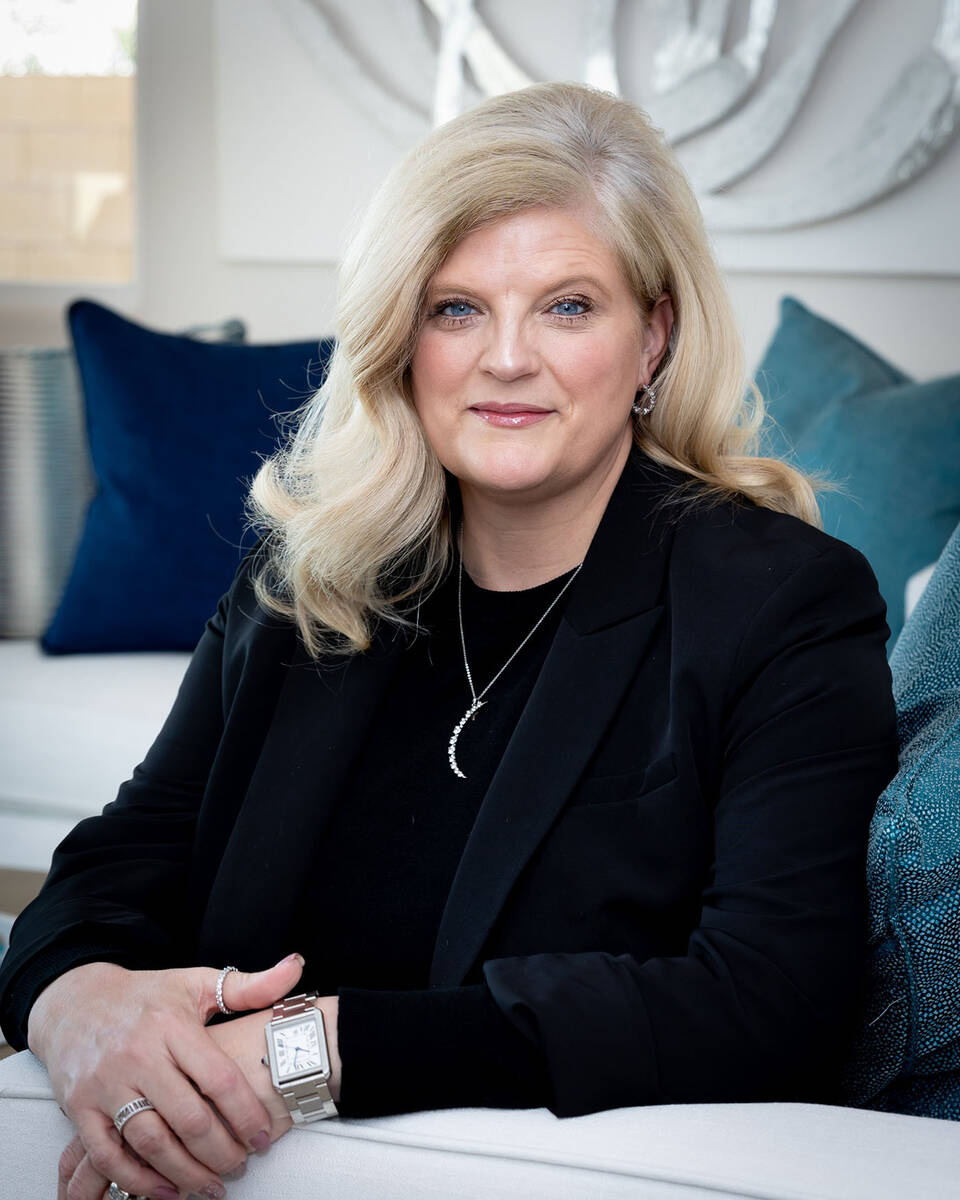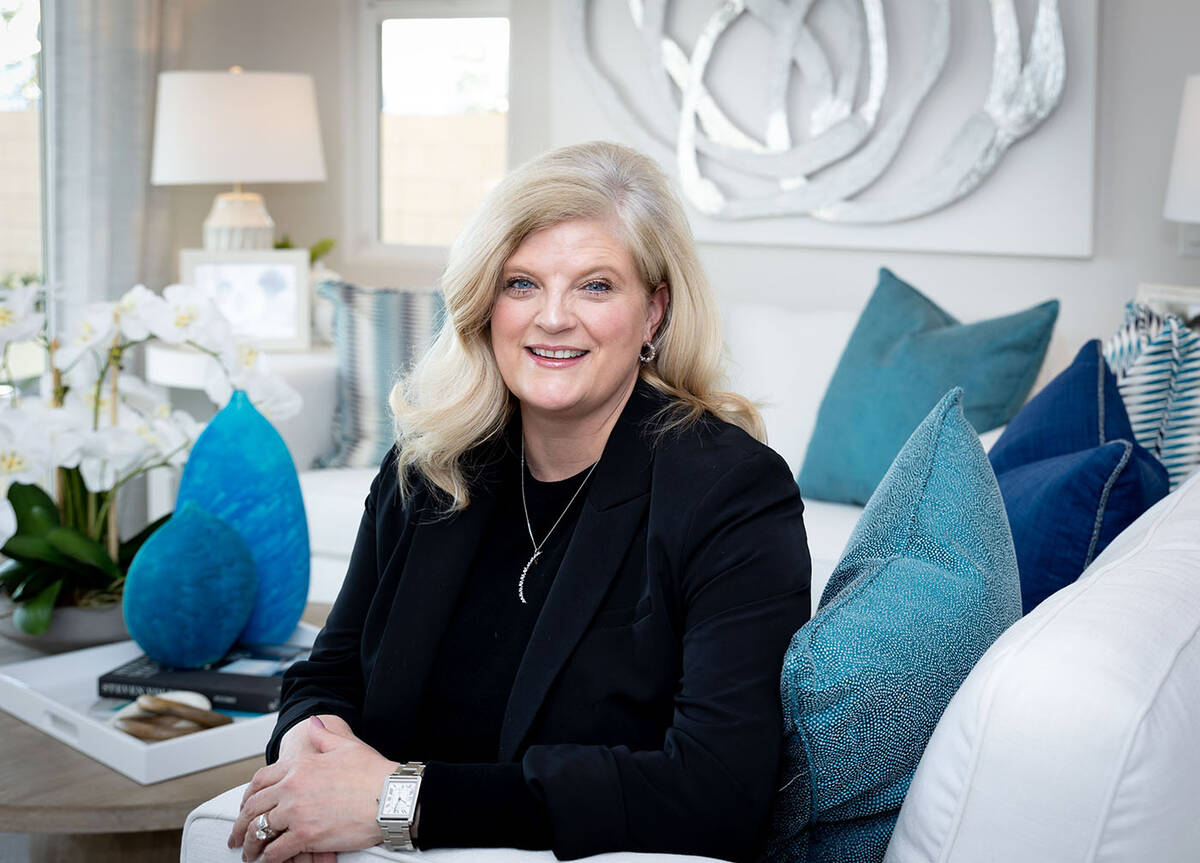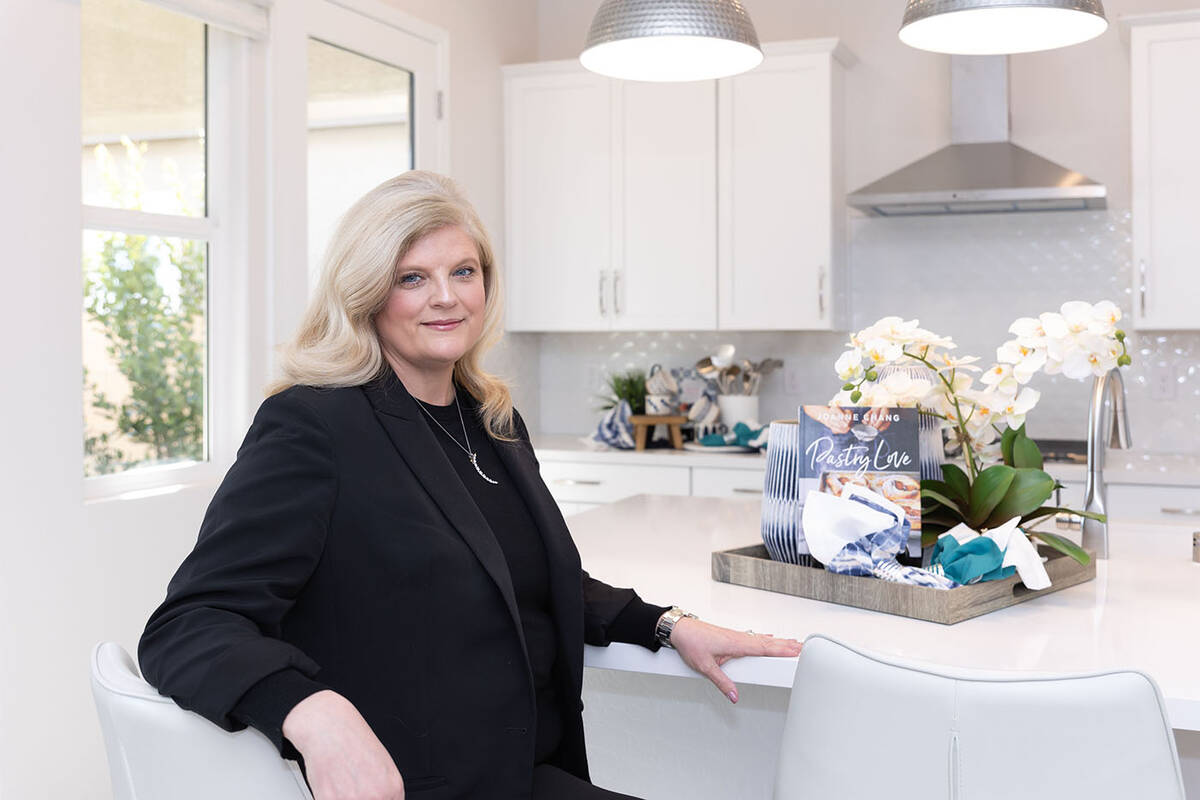In an industry in which women don’t often ascend to the highest ranks, Nicole Bloom wants her term as the third-ever female president of the Southern Nevada Home Builders Association to empower fellow women to make it a career like she’s done.
Bloom has taken the reins on her one-year term for the trade association of the homebuilding industry celebrating 70 years after being founded in 1953.
The 50-year-old Bloom has been a part of the new-home construction industry by spending most of her career in sales management. She started with Beazer Homes in 1995 and spent a couple of years selling homes for a private builder before joining Richmond American Homes in 2000 as a sales associate.
With Richmond American, she has risen through the ranks of management and became president of the Las Vegas division in 2016. As she reaches a pinnacle in her career, she said she’s driven to empower other women to discover and consider construction and homebuilding as a career through her involvement with Professional Women in Building.
Bloom and her husband, Gregg, a Realtor with Urban Nest Realty, are part of a real estate family. They have two sons, Chandler, 21, and Connor, 16, a defensive lineman at Desert Oasis High School. Chandler is preparing for a loan officer’s license.
Q: What are your thoughts about becoming the head of the SNHBA?
A: It’s exciting. I love the work that we do at the Home Builders Association. It’s important for our industry. I think being only the third woman to do it is pretty cool. (The other two were Jennifer Lewis and Janet Love) The previous two women who held the position are both friends of mine so that’s cool too. (SNHBA CEO) Nat Hodgson and his team have done a remarkable job of working through challenges and issues that come up in our industry.
Q: What would you like to accomplish?
A: One of my passions is promoting homebuilding and construction to women as the career path. That was part of my speech (at my installation). I am the third but, hopefully, we pick up the pace a little bit with more women in the role.
Q: How would you do that?
A: One of the offshoots of the Home Builders Association is the PWB and making sure to continue to promote such an amazing organization that provides scholarships to young women or women that want to further their education in homebuilding.
Q: Anything else you are working on?
A: The other thing that’s a priority for us at the Home Builders Association is Southern Nevada Trades High School that we’ve been working on for a couple of years. You have young folks who maybe college isn’t their path. There’s such terrific incomes and great careers that can come by going into a trade. The trade high school is going to help educate a younger generation that wants to go into homebuilding on different trades. When you drive through any of our sites, the average age of anybody building a house is not a young person’s game. What I worry about the most is who is the next generation that’s going to build houses. The big ask over the next year is going to be financially (using grants and private money) getting everything else in place to get supplies and instructors. Our goal was to get it open in August, but that’s going to be a stretch.
Q: Did you ever envision yourself in the role?
A: No. The irony of my actual job is I was one of the most introverted people ever growing up and would hope to never get called on in class. No one is more surprised than me that I am in a leadership role. My background is primarily sales and you talk to strangers for a living so that breaks you out of your shell. Even during my time with Richmond American, I didn’t necessarily think that becoming division president was in my path. I know it sounds cheesy, but I look at it as an honor of someone building and buying a place where they’re going to have Thanksgiving dinner or prom pictures.
Q: What attracted you to move from the sales ranks to become a division president?
A: I have been lucky to work for people who weren’t afraid to show me different aspects of the business, and I always have a strong yearning to learn. The sales position touches all parts of the business and as I grew with the company and learned more on the land side, construction side and finance side, I felt at a certain point I was meant for more. I spent a year in Salt Lake City helping run operations and that really cemented for me I thought I could run the division and be effective in all of the different aspects of the business.
Q: How did you get involved with the SNHBA?
A: With all the different issues coming up, you can either let everybody else do the work or get involved and help do the work. I thought if I wanted to be a leader in this industry, then I needed to be part of the conversation of things that affect our business everyday. The work at the SNHBA really affects our cost to do business, the timing business and the ease of doing business. It affects so many aspects of homebuilding for every single builder.
Q: What is the SNHBA doing?
A: There’s a legislative committee, a committee on land use, a committee for codes and multiple others. What the association does as issues or challenges come up, is work together between the builders, municipalities and politicians. It can be anything from fire sprinklers to how much open space a municipality wants and timing to get entitlements on new land. The goal is to work with and be at the table with the politicians to make sure to let them know things affect us positively and negatively and try to come up with solutions that are good for everyone.
Q: What is the focus of the 2023 Nevada legislative session?
A: One of the biggest two words you hear right now from everybody is affordable housing. It’s a hot-button issue. We have talked about affordable housing, and that doesn’t just mean making single-family homes. That might include transitional housing for folks dealing with homelessness or high density that can mean rentals or apartments. It’s just working with legislators to make sure homeownership is available to anybody who wants it and working through different scenarios of affordable housing.
Q: Is there anything you want passed in Carson City that would help the industry?
A: We feel like, in general, going into this legislative session that we are in a really good position. Over the last year-and-a-half we have spent a ton of time interacting with legislators on both sides of the aisle, and I think overall there’s a recognition of what the construction industry does for the economy in Nevada.
Q: What about the federal focus?
A: Over the last couple of years, there’s been a federal lands bill (to add land for homebuilding) but it has not progressed very far. It has sort of died. The land aspect of affordable housing is one of the biggest keys because when homebuilders do new communities, the land portion is the single-largest expense for us. Because we are land constrained, the land prices are so high, which drives up the pricing of houses.
Q: How do you navigate the slowdown in new-home sales in a rising interest rate environment and where is it heading in 2023?
A: I tend to be optimistic regardless of the market cycles, but we all believe there’s going to be some headwinds continuing into 2023 with rates being higher than we’ve experienced the last few years. That’s going to continue to be a challenge for folks, but on the flip side there’s a lot of great opportunities for people if they are in a position to buy a house. A lot of builders are offering special financing and bringing rates down from below what par rates are. It costs builders a lot of money to do that. There’s been some pricing corrections that have happened over the last few months that, hopefully, we are through the majority of those, but there’s a potential for some price corrections. If someone is in a position to buy a home now, this is a phenomenal time. There’s a good amount of standing inventory, and that’s where you see a lot of opportunity with special interest rates.
Q: What are the positives as you go into next year?
A: Because the market volume is going to be a little lower than what we experienced over the last couple of years, it should get quicker for us to build homes. There’s going to be more availability of trades so that’s definitely a positive.
Q: Are the price reductions and mortgage rate buy-downs going away?
A: I think there will be some adjustments because a lot of the builders are working through the inventory that we had from cancellations earlier in 2022. Those houses will be replaced by inventory the builders are doing themselves. The inventory that’s older is where you see those deeper discounts. There’s still going to be discounts and special financing, but I think once the builders find where the market is you should see some of those reductions plateau and taper off a bit.
Q: This won’t be anything like the aftermath of the Great Recession for the housing market?
A: No. The other part of this from a new-home aspect is there’s still a low amount of inventory on the resale side that if you own a home right now and sitting at a high 2s or low 3s, you’re probably not selling your house unless you have to like, leave Nevada. Although the inventory has grown via the cancellations on the new-home side, it’s still not crazy for the amount of people coming into town.When things start to improve, there’s an undersupply out there. It will be akin to the way it was in the second half of 2020 where people are just clamoring to get houses.
Q: Where will we be a year from now?
A: I would hope by this time next year we’re potentially coming out of this and in a place where builders are buying more land and unpausing some of their land development communities. I would hope a year from now we’re coming out of this and starting 2024 in a more positive way.

